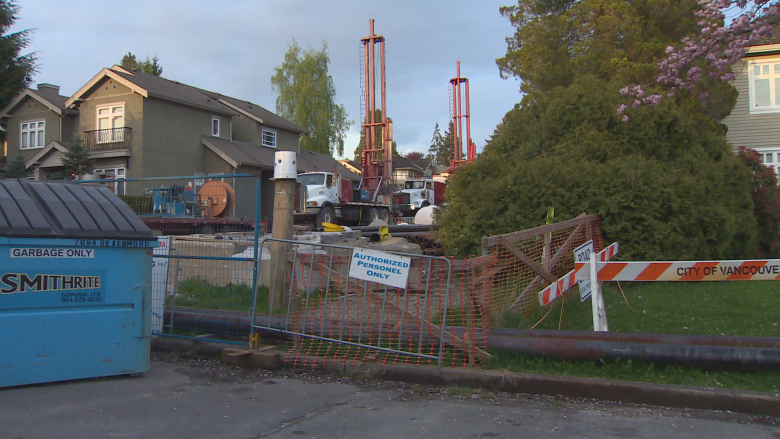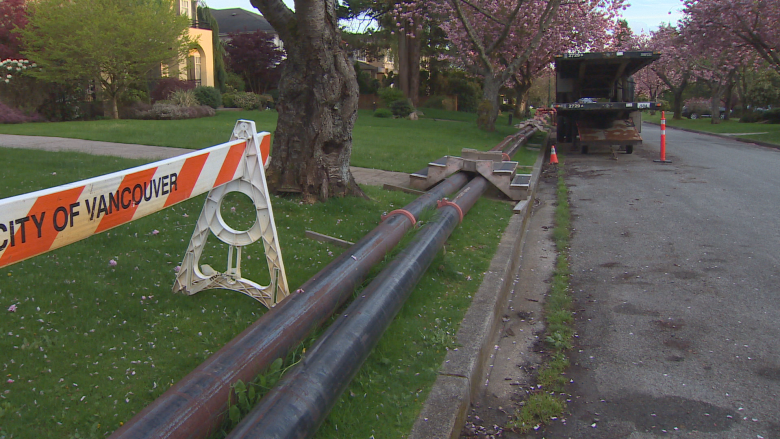City of Vancouver expects to rack up $9.9M repair bill for burst aquifer
The City of Vancouver says it expects to collect $9.9 million from a property owner who caused a massive water leak more than a year ago after accidentally drilling into an aquifer on his property — a leak the city has still not been able to fix.
In September 2015, Feng Lin Liu was building a new home on his property at 7084 Beechwood St. in Vancouver's Kerrisdale neighbourhood. He hired a contractor to build a geothermal heat exchange system as part of the project.
But the city says the contractor drilled into a high-pressure aquifer under the property, causing water and sediment to flow uncontrollably from the ground. Now, more than a year and half later, the city has spent $7.9 million on efforts to contain the flow, and expects to spend an additional $2 million before finishing.
"As we've learned, it's an extremely complicated piece of work," said deputy city manager Paul Mochrie.
Costs now exceed property value
Mochrie says the city intends to recoup those costs from Liu once repairs are complete.
Under the nuisance order Liu has been issued, Mochrie says the city can collect its costs by levying them as taxes.
But Mochrie says the repair bill now exceeds the property's value, and if the bill goes unpaid, it may result in a tax sale of the property.
Mochrie says the city has been in contact with Liu through his agent.
Work continues
Meanwhile, repair crews continue their efforts to stop the flow of water from the aquifer, which is currently being diverted down to SW Marine Drive through a temporary pipeline that runs across neighbours' lawns. Homes to the immediate north and south remain under an evacuation order.
"It's had a significant impact on neighbours in that regard," Mochrie said. "I would expect that they're going to be happy to see it finished."
Mochrie says that, as far as the city has been able to determine, this is the first instance of a high-pressure aquifer being ruptured in a high-density urban environment, so fixing it has presented numerous challenges and has required extensive study and monitoring.
He says the approach has been to drill multiple additional wells into the aquifer to relieve the pressure, which should allow crews to plug the initial breach with cement. Mochrie hopes that final step is close, but can't say exactly when that would be.
Mochrie says there hasn't been much drilling in this part of Vancouver, so not much is known about the underlying hydrogeology. He says the city has issued an advisory for the area west of Oak Street and south of 49th Avenue, advising property owners to engage a professional hydrogeologist if they plan to do any drilling on their property.
With files from Belle Puri.



